Coping with Distress During Hardships

You can personalize the Coping with Distress During Hardships resource by downloading it HERE, and adding your own responses, or continue to view it below.
When hardships strike, it’s easy to focus on the problem, feel overwhelmed, experience frustration and anxiety, and implement unhealthy coping strategies. While learning how to cope with challenges won’t put and end to all of our problems, it can help us to function mentally and physically in our daily lives. This resource will explore some ways to cope with challenging times or experiences in a healthy way.
Turn off the news, and limit social media
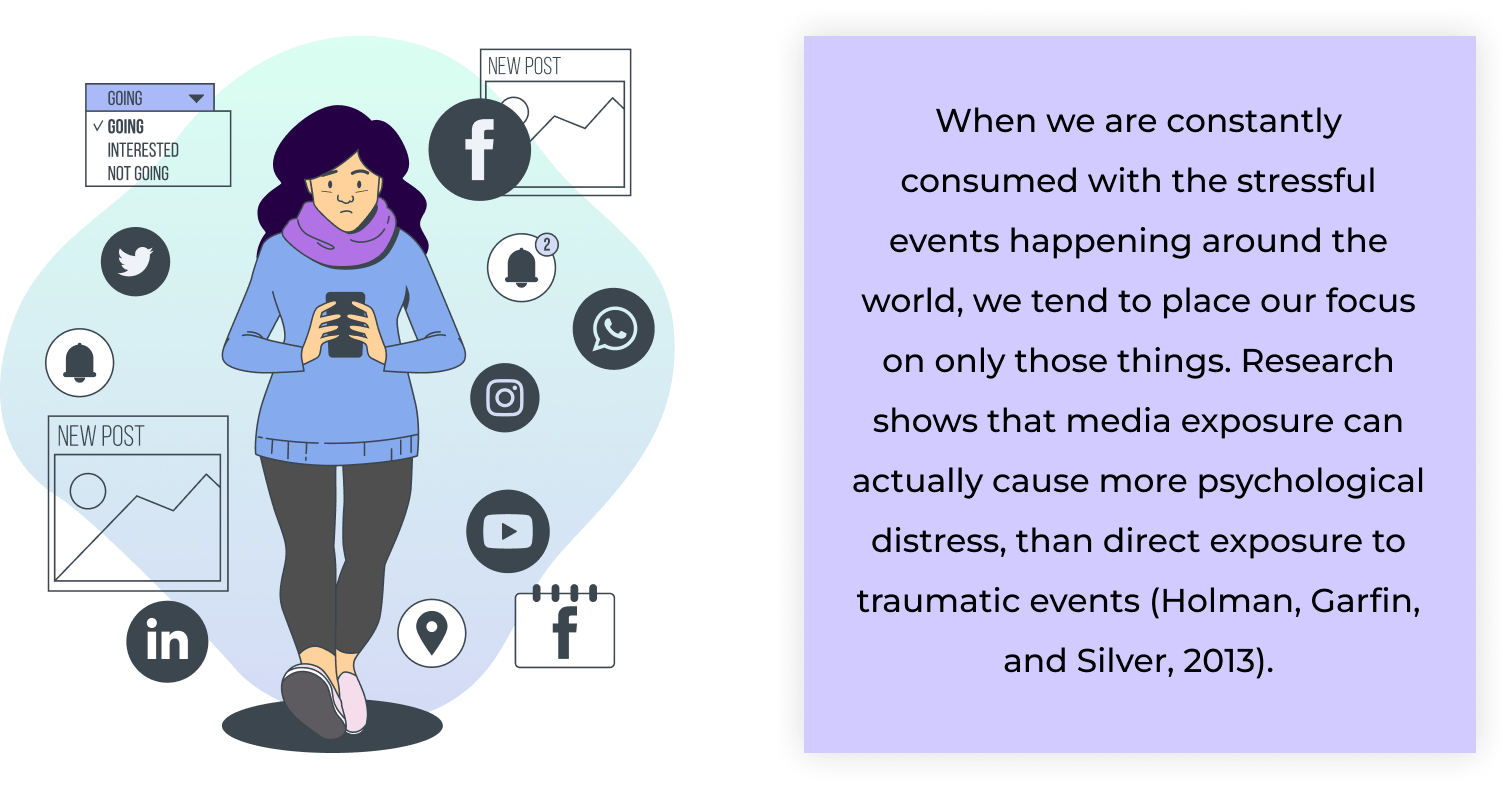
If we find we are being negatively affected or triggered by the news or social media, it may be time to set a healthy boundary around our time spent on these activities. We might consider limiting how often we check social media or the news, and instead focus on more positive content or activities that decrease levels of distress.
Protect Your Mental Health
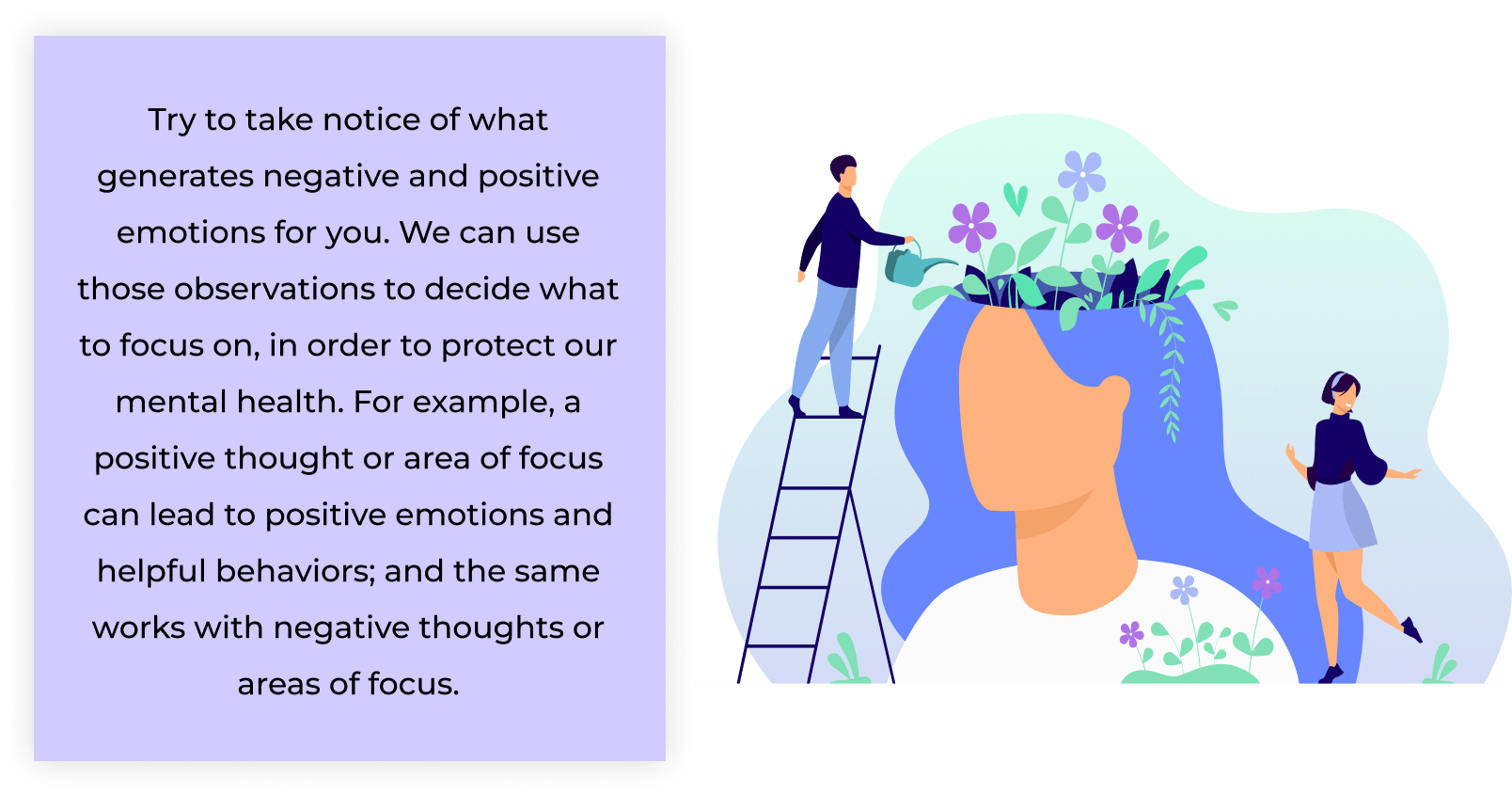
We may not always have control of our thoughts, but we don’t have to let them control us. It starts with making a conscious decision to recognize where we are placing our focus and energy, and re-focusing on things that nurture, rather than distress us. See What Charges and Drains My Battery?, Mindfulness for Positive Experiences, and Boundary Setting.
Change Your Brain Chemistry
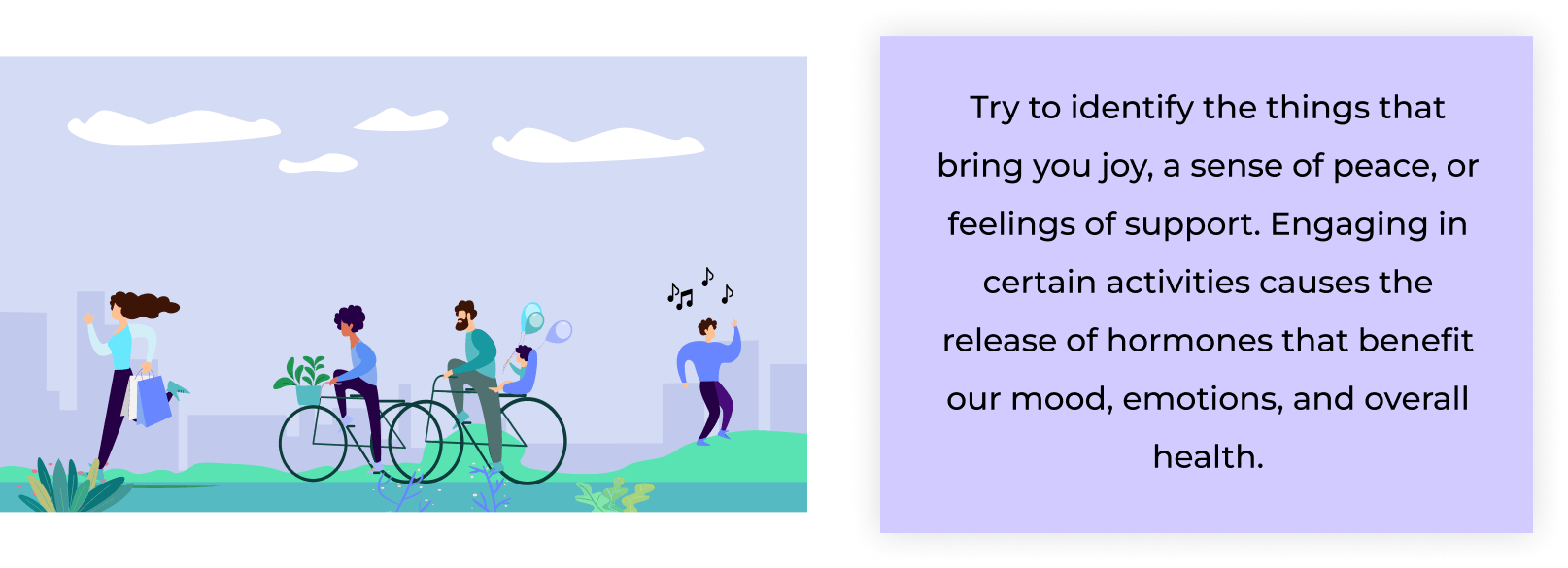
- Dopamine, for example, is released when we do or imagine things we enjoy, such as: listening to a favorite song, visualizing a place we enjoy, or eating our favorite meal.
- Endorphins, which are released during exercise, laughter, and intimacy, can act as a natural painkiller.
- Serotonin improves our mood and is present in feelings of happiness. We can increase our natural serotonin levels by getting outside for some sunshine, meditating, or spending time in nature.
- Oxytocin is a hormone that increases our sense of love and connection with others. We can trigger a release of oxytocin by petting an animal, playing with a child, holding hands, or hugging.
Recognize Your Triggers
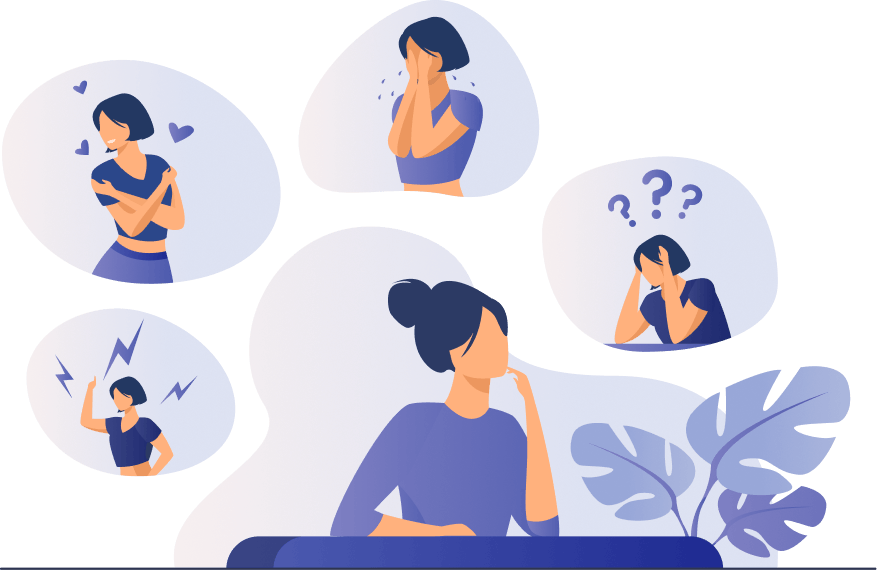
Triggers are like a service light going off in our vehicle. It’s an indication that time and attention need to be placed on a specific area of our lives. If you find yourself being distracted, easily angered, anxious, irritable, sad, depressed, and/or dealing with negative emotions when a certain event takes place, it can be helpful to take a deeper look. We can identify our triggers by keeping a Thought Record or Trigger Log. When we are more aware of our triggers, we have an opportunity to prepare for and cope with them more effectively.
Find a Support System
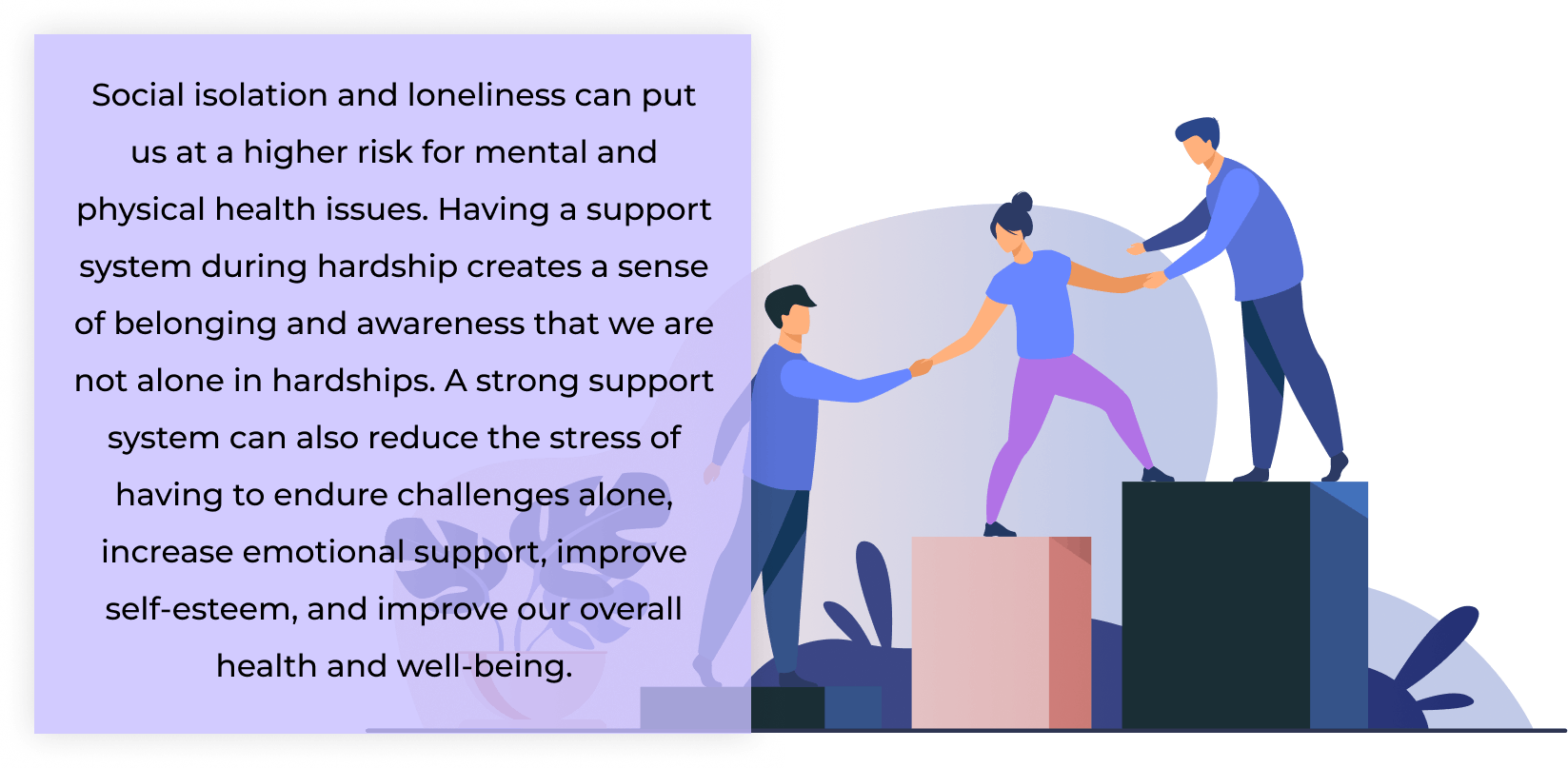
Tips to strengthen social support:
- Don’t be afraid to reach out to someone for help (e.g. community centers, local church, support groups, family members, friends, etc.).
- If you are far away from your support system, connect via technology or social media.
- Connect with people who share common interests by joining social groups, such as book clubs, sports groups, or social event meet-ups.
- Connect or reconnect with family and friends, even if you haven’t spoken in a long time.
Practice Radical Acceptance
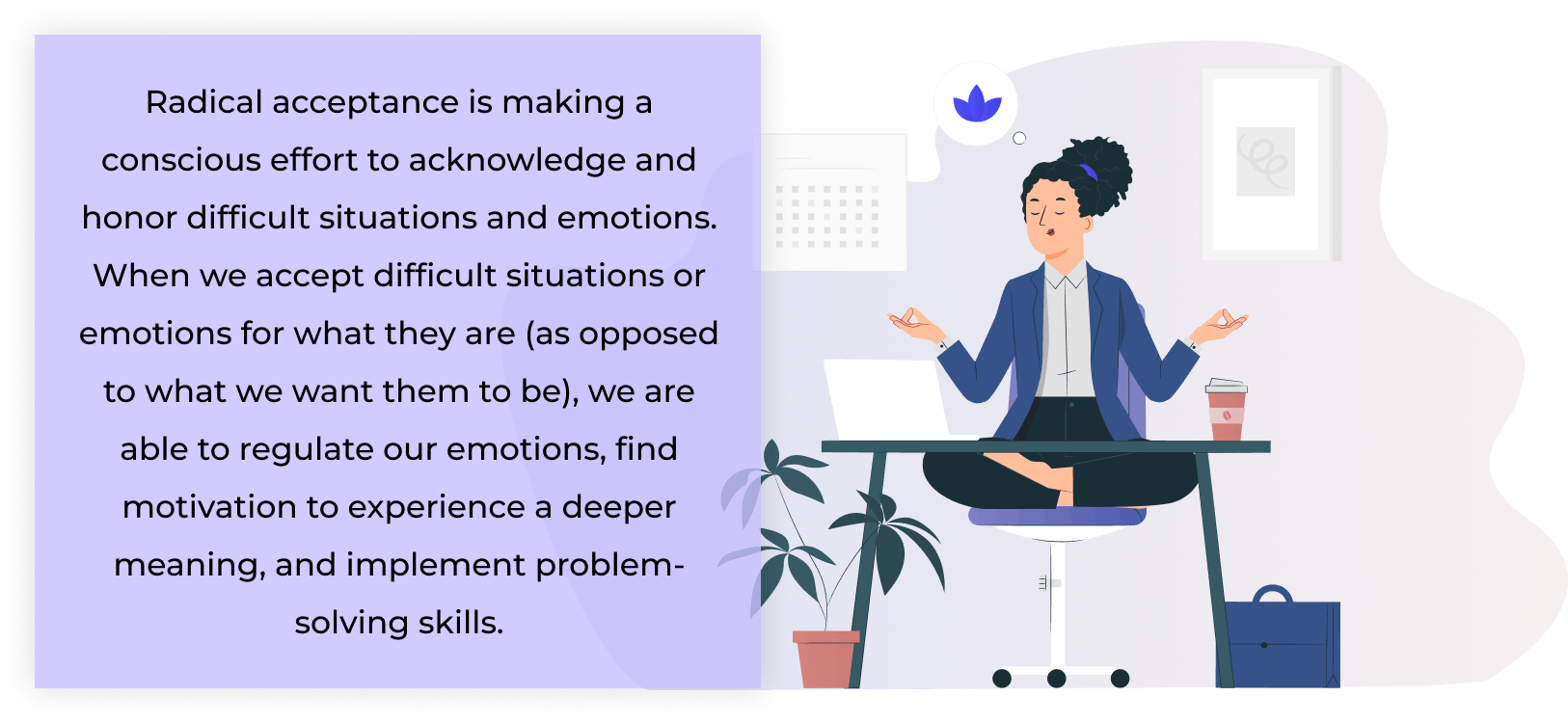
Here, it’s important to know and understand what we can control vs. what we cannot control. It’s also important to remember that radical acceptance doesn’t mean that we have to like or approve of the situation, but rather, we are choosing not to resist reality. For more, see DBT: Distress Tolerance Skills, DBT Skills: Soothing Anxiety, and Self-Compassion.
Recognize Signs and Symptoms
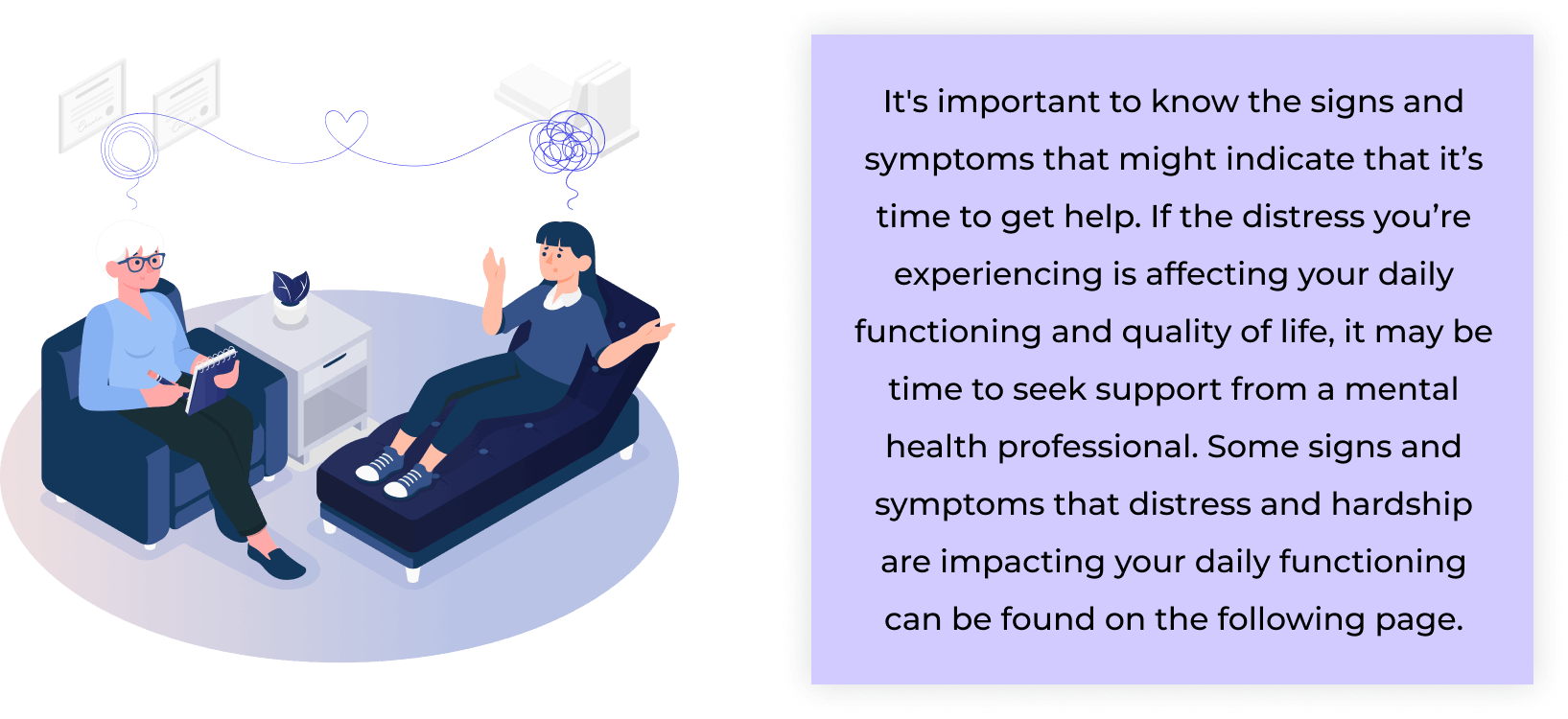
Some signs and symptoms include:
- Lack of motivation at the start of your day
- Fatigue
- Difficulty concentrating
- Difficulty controlling intrusive thoughts or worry
- Lack of sleep or appetite, or the opposite
- Irritability
- Feeling restlessness, or on edge
- Heart palpitations
- Aches or pains within your body
Reflection
The following reflections can be useful to take the information that you’ve learned through this resource, and find practical ways to make it applicable to your own life.
- What are my triggers or the situations that are causing me distress?
- What are the signs and symptoms I am experiencing?
- What have I done in the past to cope with hardship? And what can I do now? See Coping Skills
- Identify the things that make you happy and bring you joy. How can you incorporate these activities into your day?
- What is at least one (or more) thing(s) that are going well in my life?
- Who are the people I can incorporate into my support system or reach out to this week?
- What are some areas of my life where I can set boundaries to protect my mental health?
- What are some alternative perspectives that I can look at, when considering my hardship?
- How can I find a deeper meaning in my current hardship?
References
- Holman EA, Garfin DR, Silver RC. Media's role in broadcasting acute stress following the Boston Marathon bombings. Proc Natl Acad Sci U S A. 2014 Jan 7;111(1):93-8. doi: 10.1073/pnas.1316265110. Epub 2013 Dec 9. PMID: 24324161; PMCID: PMC3890785.
Call 911 if you’re having a
mental health emergency
Text Home to 741-741 if you're in emotional
distress and need immediate support
Call or text 988 Suicide &
Crisis Lifeline. Chat service
is available at 988lifeline.org.